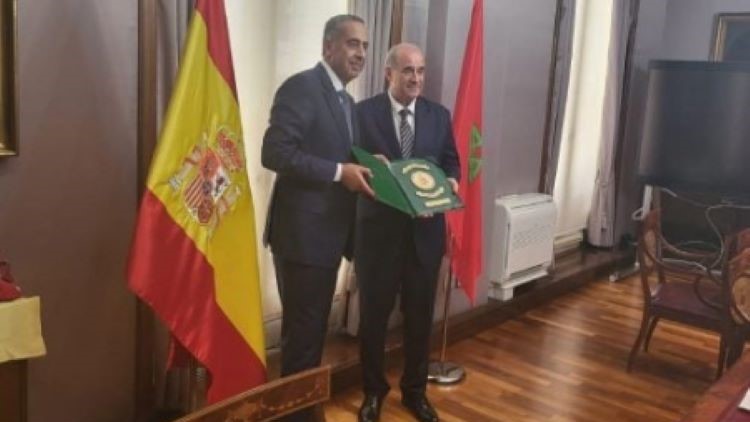Luis Ayllón
The governments of Spain and Ireland plan to approve the recognition of the State of Palestine on Tuesday, May 21, according to Irish public television ‘RTE News’. The Minister for Foreign Affairs, José Manuel Albares, did not confirm this date yesterday, but insisted that it would be “very soon” because “the decision has been taken”.
The Spanish Prime Minister, Pedro Sánchez, and his Irish counterpart, Simon Harris, have talked a great deal in recent days, both in person and online, and have agreed on the desire to recognise Palestine as soon as possible.
Spain and Ireland could be joined by Malta and Slovenia, which have been the countries that have expressed the greatest receptiveness to the initiative championed by Pedro Sánchez, although for some of them there are internal difficulties.
The rumours about the date for the recognition of Palestine coincide with Albares’ trip to Washington yesterday, where he will inform the US Secretary of State, Antony Blinken, of the Spanish government’s intentions. This will coincide with the UN General Assembly’s vote on a resolution to approve Palestine’s entry into the UN as a full member.
This entry, which Spain supports, was vetoed in the UN Security Council due to US opposition and is now going to be the subject of a debate that does not look at all calm, because some Arab countries have included Palestine having the right to sit among the member states, propose laws or amendments on behalf of a group, ask to speak on issues not necessarily related to the Palestinian conflict, co-sponsor resolutions or be elected to all Assembly committees and participate in all high-level UN sessions, where it would have the “right to vote”.
In any case, the resolution is expected to achieve sufficient votes to pass, although it is non-binding. However, for countries like Spain that want to recognise Palestine as a state, the vote in the Assembly will be an element that will play in favour of their position.
Spain would be in a position to adopt the measure at the Council of Ministers on Tuesday, the 14th, but the Prime Minister said he would inform the Congress of Deputies beforehand, even though it is an executive decision that does not require parliamentary approval. Sánchez is aware that he will not have the support of the PP, which, although it agrees with the two-state solution (Israel and Palestine), does not believe that now is the right time to make it a reality.
Similarly, waiting until the 21st could make it easier for other countries, such as Slovenia, where parliamentary approval is required, to join the measure.
In any case, according to Efe, the Slovenian government has announced that it will send the proposal for recognition of the Palestinian state to parliament before 13 June, so it is possible that it will not be able to do so along with Spain and Ireland, and perhaps Malta. The governments of the four countries committed themselves on 22 March, in the margins of the European Council, to proceed with the recognition of the Palestinian state, although without setting a date.
Yesterday, Minister Albares, who was taking part in an event in Madrid to mark Europe Day together with the EU’s High Representative for Foreign Policy, Josep Borrell, when asked whether the aforementioned recognition would take place on the 21st, stated that “the decisions of the Council of Ministers are never anticipated” and affirmed that “what is really important is not so much the exact day, but the decision, and the decision has been taken”.







